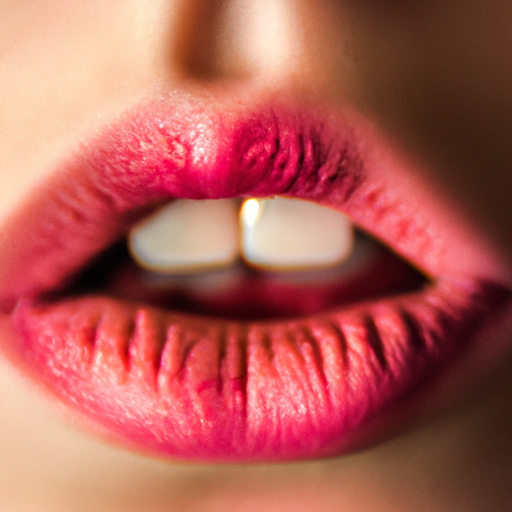Chapped lips, also known as cheilitis, are a common condition that can be a source of discomfort and embarrassment. Despite its prevalence, the causes behind chapped lips are often misunderstood or overlooked. As an expert in dermatology, I will aim to unravel the mystery behind the causes of your chapped lips.
The skin on our lips is thinner and more delicate than the skin on other parts of our body. This makes it more susceptible to drying out and becoming chapped. The primary cause of chapped lips is environmental factors such as cold, dry weather, wind exposure, and excessive sun exposure. These conditions strip away the natural moisture from the lips, causing them to become dry and cracked.
Dehydration is another common cause of chapped lips. When your body is dehydrated, it reduces the amount of moisture available for your skin and lips. This lack of hydration can lead to dry, chapped lips. Therefore, it’s important to drink plenty of water and stay hydrated, especially during hot weather or when you’re ill.
Certain lifestyle habits can also contribute to chapped lips. For example, licking your lips can cause them to dry out. Although it might seem like a good idea at the moment, saliva evaporates quickly, leaving your lips drier than before. Similarly, breathing through your mouth, especially while sleeping, can also lead to dry lips.
The use of certain medications and medical conditions can also cause chapped lips. Medications such as acne drugs, antihistamines, and certain blood pressure medications can lead to dryness of the lips. Medical conditions like thyroid disease, diabetes, and even common colds and flu can also cause your lips to become dry and chapped.
Your skincare routine might also be contributing to your chapped lips. Many lip products contain ingredients like menthol, camphor, and peppermint that can irritate your lips and cause dryness. Even toothpaste with strong flavors can cause a similar effect. It’s important to choose lip products with moisturizing ingredients like beeswax, shea butter, and oils.
Lastly, a deficiency of certain vitamins, such as B vitamins, can lead to chapped lips. These vitamins are essential for skin health, and a lack of them can cause dryness and cracking.
In conclusion, the causes of chapped lips are varied and can range from environmental factors to lifestyle habits, medical conditions, and even your skincare routine. Understanding these causes can help you take steps to prevent and treat chapped lips. It’s important to protect your lips from harsh weather conditions, stay hydrated, avoid lip-licking and mouth-breathing, choose lip products wisely, and ensure you’re getting enough vitamins. If your chapped lips persist despite these measures, it’s advisable to consult a dermatologist to rule out any underlying medical conditions.



